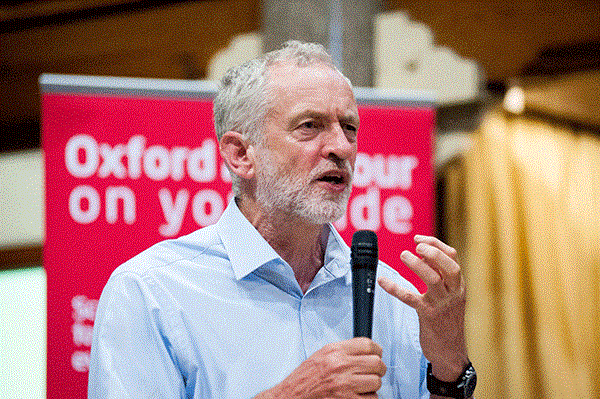You are viewing 1 of your 1 free articles
For greater accountability to tenants we need a change in company law
Under current legislation tenant board members cannot represent tenants, when by law they have to represent the interests of the organisation, notes Mike Owen
Housing for the Many is the title of recent Labour Party Green Paper, and is the first housing paper of the Jeremy Corbyn era, it is very welcome after a period when the only housing policy was the ladder to home ownership.
However, the section about creating more democracy and greater accountability to tenants, unfortunately, does not really offer anything new and pulls its punches.
One area in the accountability section that is good, is the recognition that tenants need a national voice.
We cannot continue with the current situation where the national voice of tenants in England has been slowly strangled of resources, and where the loudest voices now speaking up for tenants are the landlord’s trade body and the professional voice of housing employees.
The green paper also maintains the current thinking that boards have the sole controlling rights for the governance of housing associations.
Of course, boards are frequently very good and nobody joins the board of a housing association to do bad things.
However, it is the tenants and employees who bear the ultimate cost of corporate governance failure, not the board members.
Look at the history of poor governance and it frequently ends with either: mergers, rent increases for tenants, capital spending restrictions on improvements or new build contraction, and in the very worst case death or injury to employees and tenants.
“It is the tenants and employees who bear the ultimate cost of corporate governance failure, not the board members.”
The green paper does not consider other models of governance that bring tenants and boards closer together, such as the mutual model, and it retains the board at the top of a governance pyramid. To increase accountability it identifies that there is a principled case for tenant representation alongside other expertise and skills on housing association boards.
Of course, having tenants on a board is better than not having tenants on board but this is nothing new and it has structural weaknesses that cannot be ignored.
Without wanting to get into a Marxist dichotomy debate, tenants cannot represent tenants when they are on a board and instead, by law and culture, they have to represent the interests of the board and the organisation.
I have seen far too many examples of fantastic tenants standing directly for boards or being appointed to join boards, who arrive at meetings with a real fire and a passion to be accountable and who are seeking mechanisms to feedback to their community.
The restrictions of company law prevent from being accountable to the tenants who put them there, by virtue being a non executive director.
“Tenants cannot represent tenants when they are on a board.”
If Labour is serious about putting tenants on the boards of housing associations, it is time to change the company law that housing associations operate under.
It does not have be this way, as in the majority of the EU, most company law is structured to allow workers on the board and these boards then operate in a slightly different way, allowing the appointed workers to remain accountable to the people they represent.
In Germany the term used is ‘co-determination’ or the co-operation between management and workers.
This model might be interesting to explore for housing associations and, with the right law changes, we could create space on the board for genuine representatives of tenants and employees. Germany requires companies to have a two tier system, with an executive board chaired by the CEO and a supervisory board composed of non executive who are shareholders and employee representatives.
The executive board is required to co-manage with the supervisory board.
When we set up our mutual at Merthyr Valleys Homes, the tenants, and in particular the councillor appointees, had woken up to the smoke and mirrors that is the board structure under company law in the UK.
As councillors they are accountable to their electorate but could not bring the board of the housing association to account when they themselves were legally the board.
“With the right law changes we could create space on the board for genuine representatives of tenants and employees.”
We now have split this structure, first electing a body of tenants and, in our case, also employees who are accountable and who can be accountable within the constraints of company law.
The non-executive directors are now appointed by these elected and accountable tenants.
The tenants exercising the power of appointment and dismissal over the board has been powerful, and I have seen, over the last two years, the change in what is how a skills based board acts in the interests of the people who appoint them and who are held to account by the people who appointed them.
Without a change in company law the rules of individual housing associations could in the short term be adapted to formalise a consultative process with tenants, where the board has to follow its own constitution and has to listen to the voice of tenants on defined areas of the business.
Perhaps when Labour produces its next green paper on industrial relationships, it will include co-determination and a role for employee representatives on company board, and then housing might get the chance to give company law the change it needs.
Mike Owen, chief executive, Merthyr Valleys Homes
At a glance: Labour’s social housing proposals
- Scrap the affordable rent product and introduce new income-linked rents
- Introduce a new “Decent Homes 2” target for social landlords to improve fire safety post-Grenfell
- Make housing associations subject to the Freedom of Information Act
- Prohibit for-profit housing associations
- Set a new target of one million new affordable homes over 10 years, mostly at social rent
- Impose a new duty to deliver affordable homes on councils, introducing a new needs assessment and an affordable new homes bonus
- Establish a new English Sovereign Land Trust to help councils acquire land more cheaply.
- Form a new national tenants’ organisation and commissioner
- A “longer-term aim” for half of all new homes to be “genuinely affordable”
- Give housing associations access to Public Works Loan Board finance
- Consider returning in full the Treasury’s previous year’s share of Right to Buy receipts
- Introduce a planning “presumption” that all developments, including rural and smaller sites, will include affordable housing
- Help councils with no stock to start a Housing Revenue Account
- Fast-track Karen Buck’s Homes (Fitness for Habitation) bill
- Consult on requiring landlords to publish an annual “outsourcing statement”
- Consult on housing associations to be required to have tenants on their boards












